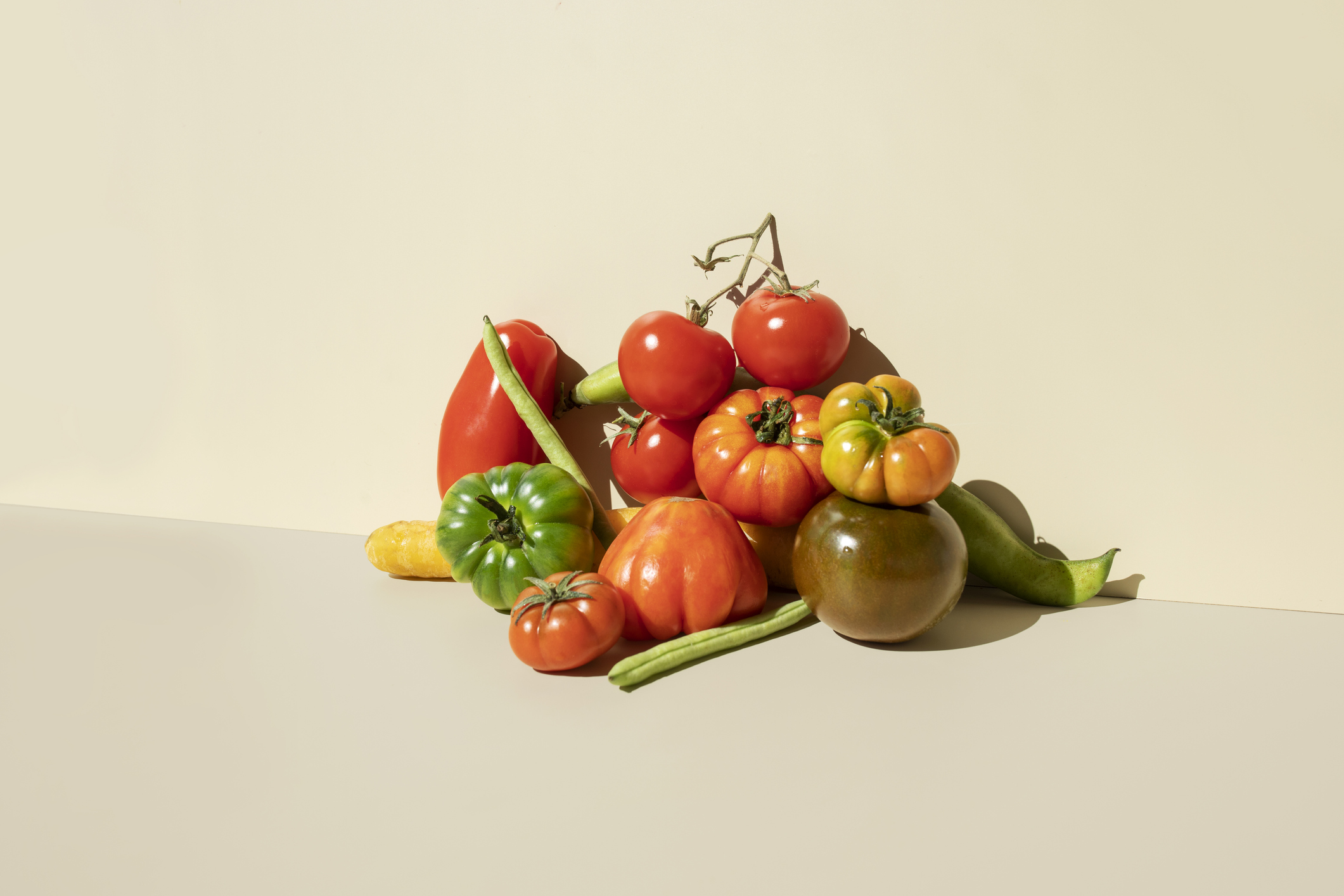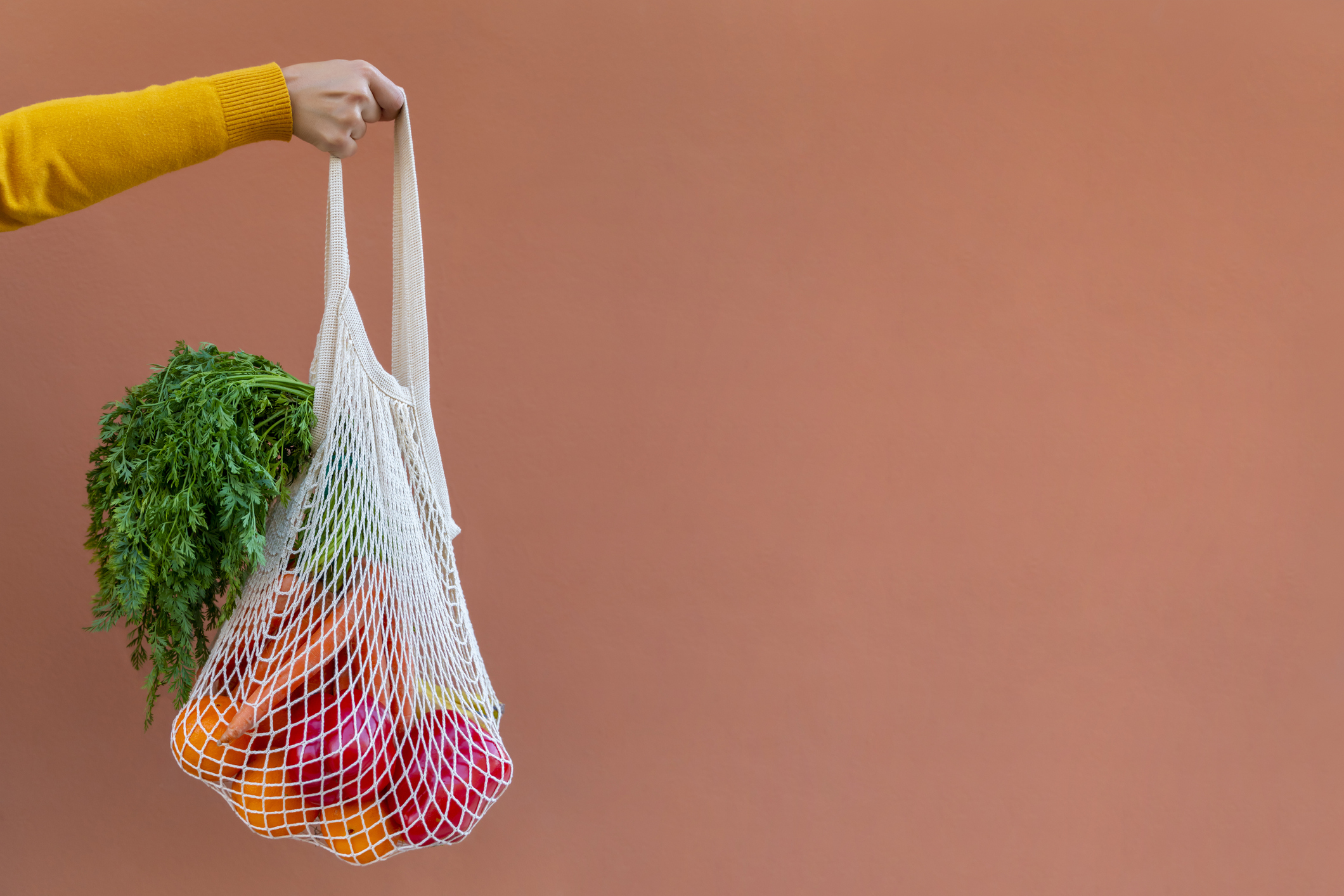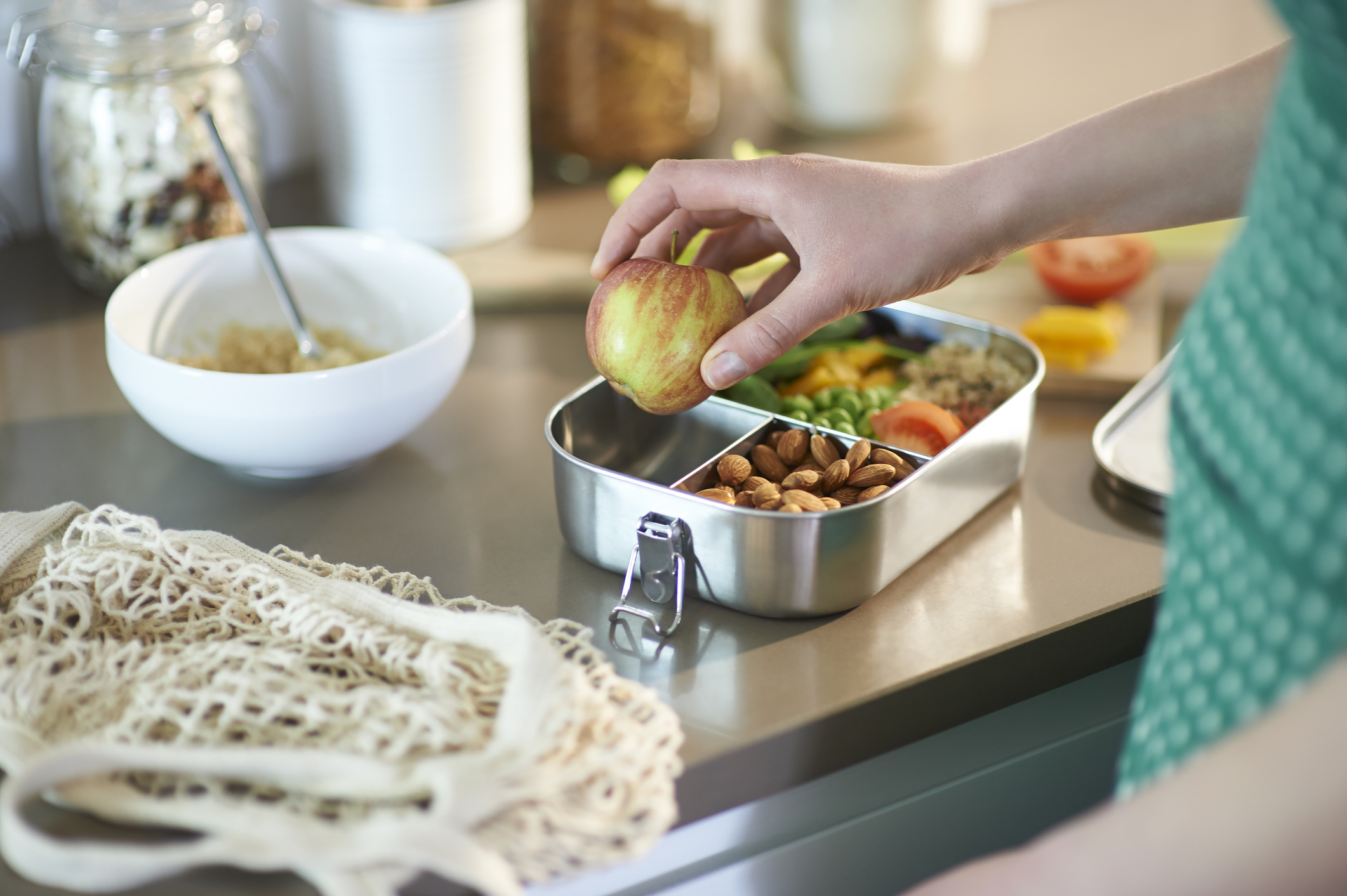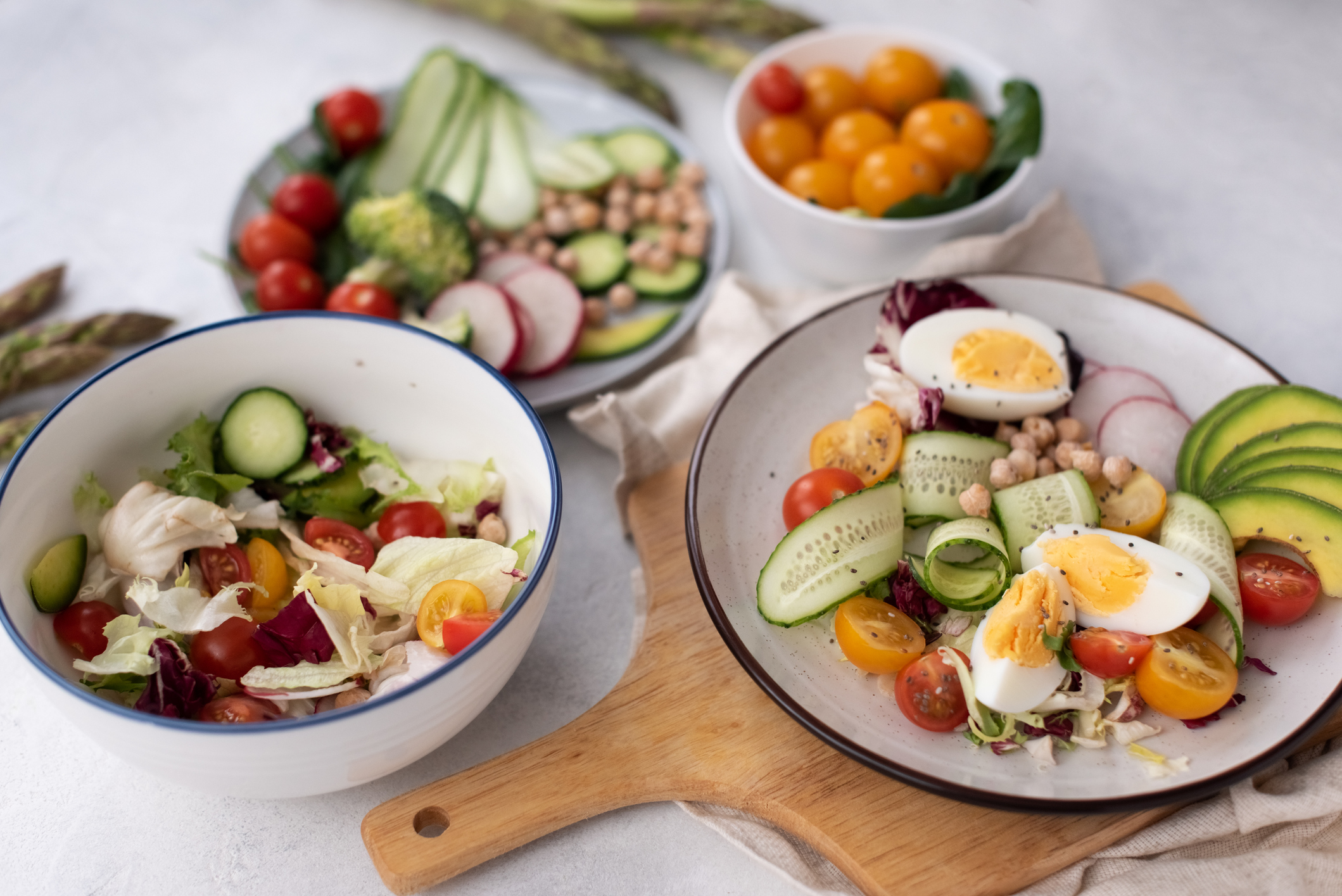
Celebrity news, beauty, fashion advice, and fascinating features, delivered straight to your inbox!
You are now subscribed
Your newsletter sign-up was successful
Vegan, veggie, or somewhere in between? Gut health specialist dr Megan Rossi explains.
Ever wondered - what is a plant-based diet?
You're far from alone, if so. There are 2,160,000,000 Google searches around the term, with Twitter pulling up some serious (meme-based) confusion. Does plant-based eating mean following a vegan diet, cutting back on your meat enough to count as vegetarian, swerving meat but still eating fish and so classifying as a pescetarian, or, well, a bit of everything, flexitarian style?
Short answer: it appears to be a bit of a mystery, which is why we've asked doctor Megan Rossi (PhD), registered dietitian and author of Eat More, Live Well for her take.
Ready to learn what plant-based means, once and for all? Keep scrolling - and don't miss our guides to vegan protein and vegan protein sources, while you're here.
What is a plant-based diet? Your guide
What is the definition of a plant-based diet?
First things first: not a weight loss diet, but a lifestyle and "healthy" way of eating. It's become a bit of a hot topic in recent years thanks to the likes of Deliciously Ella and Madeline Shaw sharing plant-based recipe after plant-based recipe on social media - but what does it actually mean? Stripping back all of the fun from your diet and only eating veg and whole grains?
Short answer: no, and any way of eating that you can't maintain day-to-day - or you simply don't enjoy - is a classic example of a diet fad that's not worth your time.
Celebrity news, beauty, fashion advice, and fascinating features, delivered straight to your inbox!
Plant-based eating, rather, promises to be a flexible, non-prescriptive approach to eating which, in short, encourages you to eat more vegetables, pile your plate with seeds and legumes, and potentially boost gut health, too.
Her experience with clients has taught her many things, but largely that there can be a lingering prejudice when it comes to going plant-based - "whatever you believe that means". Why? Because, "for a lot of people, it suggests a worthy attitude and bland, boring food. "Some associate "plant-based" with restriction and missing out on their favourite flavours, meals, and – heaven forbid – birthday cake or Grandma's famous biscuits," she goes on.

Raise your hand if you'd have thought as much prior to reading this article? If that's you, Rossi wants you to take one thing away from this article - none of that applies here. "This is not an extreme way of eating or, as the name implies, weight loss diet - quite the opposite, in fact.
"The clue to defining plant-based eating is in the word "based"", she shares. "It means making plant foods the foundation of your diet and in all likelihood, eating more of them than you do now - but what you choose to layer on top of that is up to you."
You read that right - so you can be plant-based and eat meat, fish, or dairy, but the main focus of your diet should be fruit, veg, legumes, seeds, and so on, and eating a variety of them regularly.
The plant-based spectrum
Point A: Veganism
- Avoids all animal produce – meat, seafood, dairy, eggs, and honey
- Focuses entirely on plant foods.
It is important to note here, however, that some vegans aren't plant-based in that they eat a highly-processed diet of no whole foods.
Point B: Lacto-vegetarianism
- Avoids meat, seafood, and eggs
- Eats dairy, and honey
- Focuses a lot on plant foods.
Point C: Lacto-ovo vegetarianism
- Avoids meat, and seafood
- Eats eggs, dairy and honey
Point D: Pescetarian
- Avoids meat
- Eats seafood, eggs, dairy and honey
Point E: Flexitarianism
- Eats small amounts of meat – whether that’s once a day, once a week, or less frequently
- Still the greatest proportion of your diet comes from the plant world.

Wondering how someone who eats meat can be, well, plant-based? Isn't that a contradiction of the term entirely? Not really - it's a move towards a more mindful place, where people can eat a certain way 90% of the time, but occasionally opt for meat during a special meal out, to enjoy a family-cooked recipe, and so on.
Rossi personally encourages eating meat every so often - if the meat si reared correctly. "Including some animal foods in your diet can be a valuable way to decrease your risk of nutritional deficiencies - I am in no way antimeat," she shares.
"What I am, emphatically, is pro-plants," she continues. "When I say eat more, it’s not just about quantity, but also variety. The more diversity, the better."
Immediately picturing a sad-looking green veg salad? "There’s a wealth of flavour and colour that comes from plants," continues the nutritionist.
Start by loading your plate up with:
- Wholegrains
- Fruits
- Vegetables
- Nuts
- Seeds
- Beans
- Pulses
- Herbs
- Spices.
Don't miss our guide to gut health hacks and what causes bloating, while you're here.

How do we know that plant-based is more healthy?
Good question - and one that needs to be broken down before it can be answered.
It's more healthy for the planet than eating meat at every meal because eating more veg stops deforestation, reduces soil degradation, and lowers greenhouse gas emissions caused by meat production. (Don't miss our guide to sustainable living, while you're here).
And on the human front, it's also a no-brainer. As Rossi explains, to put the concept that "plant-based" doesn’t automatically equal "healthy" to the test, a team of researchers developed the plant-based diet index (PDI). Never heard of it? It’s a way of scoring plant foods that essentially classifies them based on the level and nature of the processing.
Testing 200,000 participants, they discovered that those who ate more high-quality whole plant foods - including minimally processed wholegrains, whole fruits, vegetables, nuts and seeds, legumes, herbs, and spices - were far less likely to develop heart disease than those who ate low-quality, highly processed plant foods - such as refined grains, cereals, fruit juices, and pastries.
So - lentil bolognaise anyone?

Ally is Marie Claire UK's Senior Health and Sustainability Editor, a well-regarded wellness expert, ten-time marathoner, and Boston Qualifying runner.
Utilising her impressive skillset and exceptional quality of writing, she pens investigative, review and first-person pieces that consistently demonstrate flair and originality.
As well as writing, Ally manages a team of freelancers, oversees all commissioning and strategy for her pillars, and spearheads the brand's annual Women in Sport covers, interviewing and shooting the likes of Mary Earps, Millie Bright, and Ilona Maher. Shortlisted for three BSMEs and winning one in 2022, Ally lives and breathes her verticals: her eye for a story and connections within the wellness sphere are unrivalled. Follow Ally on Instagram for more.
